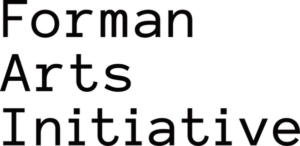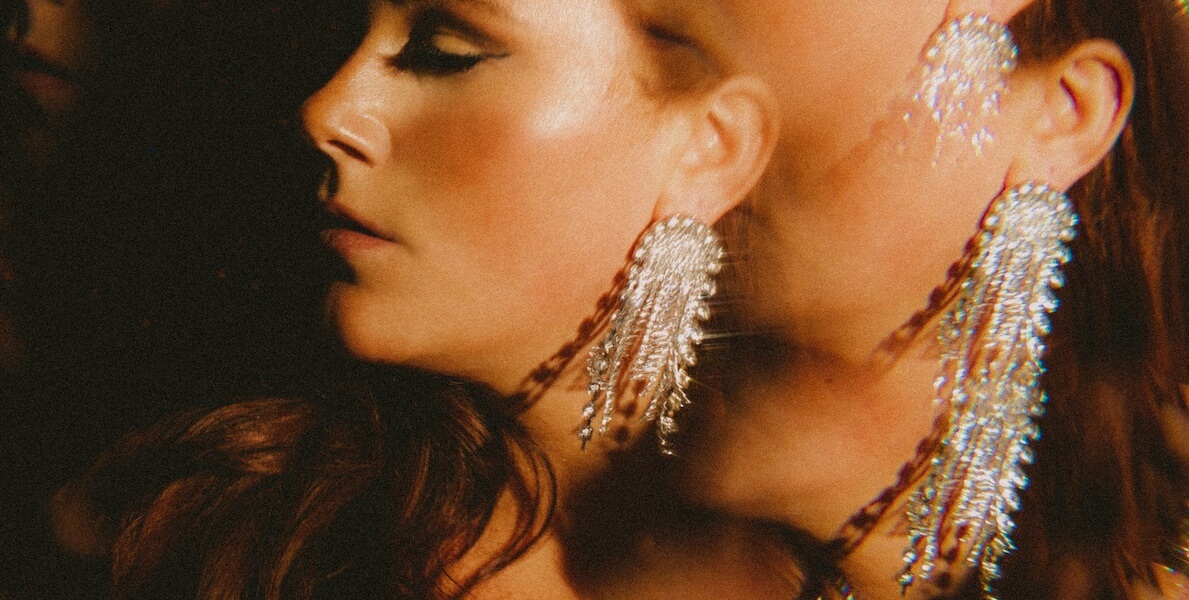R & B singer Suzanne Sheer began writing music in her native Pittsburgh when she was just 15, and recorded her first songs at 18. You may recognize her from early collaborations with fellow Pittsburgh natives Wiz Khalifa and Ricky P on songs like Without You. Today, Sheer lives in Philadelphia, where she recently recorded her first full-length solo album, The Blue Hour.
Sheer moved from Pittsburgh to what she describes as a “disgustingly charming row home” in Fishtown in 2014 — and has been immersed in the Philly music scene ever since. The Blue Hour, released last month, is the culmination of two years (and many late nights) spent recording in a studio above nightclub and live music venue Warehouse on Watts. When Sheer and producers 3xpo and Lotits first began recording songs — some written 11 years ago, some written just moments before recording — they “… had no idea it was going to become The Blue Hour,” Sheer says.
https://www.youtube.com/watch?v=CBDOMhem944
Sheer’s powerful, diverse voice blends just as seamlessly against dense, glitchy beats as it does against a sparse guitar. With intimate lyrics about sex, love, and social media stalking-sparked jealousy, it’s an impressive album — and a playful one, too, blending pop, soul, and electronic music. Philadelphia is lucky to call the album a product of its city.
You can hear Sheer perform this Saturday, July 30, at The Oval; Thursday, August 4, at The W Hotel, and other venues throughout this summer. For more details, check out @suzannesheer on Instagram.
Morgan Nitz: How did you end up here in Philly?
Suzanne Sheer: After I finished college in New Mexico, I moved back home to Pittsburgh and quickly realized that if I wanted to really pursue my dreams in music, Pittsburgh wasn’t where I needed to be. That being said, I absolutely love Pittsburgh and living there. My two closest friends were finishing college in the Northeast, and I was coming to visit them as often as I could. One day we were discussing how epic the music scene in Philly was, and we just had a moment where we said, “Wait … Should we just get a place in the city together?”
We found a disgustingly charming row home in Fishtown and moved in June 2014. My friends and I all started working at Good Spoon Soupery in Fishtown and truly became family with the owners and other women who worked there. They are still my best friends here [in Philly]. Good Spoon closed for good in May for many good reasons and I’m honored to say I worked there for six years.
How did you get into writing music? Did you have a community of peers that you collaborated with, or did you primarily work alone?
I started writing songs on my family piano when I was 15. My grandmother was an opera singer and piano player, and my father and older brother are both incredible musicians. I was surrounded by music my whole life. It wasn’t until I was about 18 that I started collaborating with producers and recording my songs, seeing what they could really become when someone else added to them.
When I moved to Philly, the first place I played out was at Time restaurant during their Tuesday night open mic. That was my first experience jamming. Getting on stage and having this incredible house band play along with me felt like the coolest thing ever. Like I was finally living my “artist in the city” dreams.
You just released a new album, The Blue Hour. Was there one song that inspired the rest, or did you set out with an intention of writing an album?
The Blue Hour is a real mix of songs I wrote years ago, songs I wrote an hour before I got to the studio, and songs I wrote with my producers 3xpo and Lotits, in the studio, at four in the morning.
I wrote Down For You 11 years ago when I was 18. I have performed it so many times, people have known the lyrics for years. It feels extra special to finally have a recorded version of it that I love on my first album.
When we started recording an album, we had no idea it was going to become The Blue Hour. We were just enjoying creating and building these records. Then, when we recorded Dust, I think we all realized this was going to be bigger than we had ever initially intended. We spent two years growing together as artists, friends, and humans. It was the best two years of my life.
Your song Girls on the Internet addresses internet anxiety around dating, lack of privacy. How does social media complicate what it means to be a musician?
I think that having social media as a tool to share your art and connect with people all over the world is one of the most amazing things about our generation. However, I find myself resenting it when it feels like social media presence as an artist is more important than the art itself.
I have seen many memes and funny spoof videos of artists impersonating record labels and managers saying, “Okay, time to post your daily TikTok,” or, “Time to make more content.”
It can be really discouraging and uninspiring when all you want to do is make art, and it feels like getting likes is more important. Why does that have to be such a big factor?
As I listened to The Blue Hour, I heard glimpses of so many vocal styles, reminding me of everyone from Adele to Ravyn Lenae (and even for a split second, Imogen Heap). Who are your influences? Were you listening to any artists in particular while writing / recording?
Wow, firstly, thank you. Those are all artists I love so I really appreciate hearing the album reminded you of them. I have always been heavily influenced by soul singers: Aretha, Etta, Otis. That classic sound is my biggest vocal inspiration.
When it comes to writing, Tracy Chapman, Fleetwood Mac, Amy Winehouse, Radiohead and James Blake have heavily influenced my pen. Other big inspos for me sonically that I think you can hear reflected on The Blue Hour include Daft Punk, The Weeknd, The Cure, and Lana Del Rey, to name a few.
A few months ago, you held a limited, intimate preview of The Blue Hour at Warehouse on Watts (WOW). What was that like? What is your connection to WOW? Is the venue special to you?
I had been to Warehouse on Watts for many fun drunken nights, and never knew there was an incredible studio upstairs. During the pandemic, not only was I there almost every day recording the album, but I also got to have a behind-the-scenes look at the creation of “WowTV” which 3xpo created to give DJs a chance to still be creative and live stream their sets via professional recording at Watts.
Lotits was creating amazing visuals that were displayed behind the DJs via green screen, and people could have a fun club night from home while stuck in the house during uncertain, depressing, scary times. It was absolutely incredible to witness.
It was only right that we had our first show previewing the album at Watts, where it was born, and where I spent so many incredible inspiring nights surrounded by amazing people. Now, Warehouse on Watts feels like a second home to me.
What did the collaborative process between you and producers 3xpo and Lotits look like? What about Philly rapper, Khemist, who is featured on “Story?”
Lotits and I have been friends for years. He had been sitting as my drummer, playing hand drum for me at live shows and it was really fun and exciting to form a mini, just-for-fun band with him and our friend, incredibly talented guitar master, David Stipo. We called ourselves Suzie, with ‘The Hoops.’
I was in a sort of musical limbo having just come out of a record contract when Lotits suggested we record a song with his friend 3xpo at Watts Studio. Instantly, we realized we clicked musically, as well as personally. We recorded two songs and then 3xpo asked, “So like … what are you doing? You wanna make an album?” And the rest was history.
3xpo and our friend and executive producer of the album, Max Morgan, both knew Khemist, and they suggested the collaboration. I was sick in bed with Covid when 3xpo FaceTimed me with Khemist in the studio and played me his verse on Story. I was blown away.
Lotits and 3xpo changed my life forever. They gave me the chance to record the album of my dreams and have worked so hard for and with me. They are my brothers for life.
If there’s one thing you hope to impart through your music, what would it be, and who would you want to hear it the most?
I hope that my music just allows people to feel whatever it is that they need to feel. That’s the most special part about listening to music to me. If you need to cry, here, let this help you. If you want to dance, check out from reality, clean your house, take a road trip, call your ex, take a chance on a new lover, I gotchu.
That is my hope. That anyone and everyone who wants to, can just feel whatever they need to while listening to my music. Feeling can be scary, but with music, it becomes a little easier.
Favorite place in Philly to go on a night out?
There are so many great spots to go out in Philly. If I’m just having drinks with friends on a more chill vibe, you could find me at spots like El Bar and Johnny Brenda’s. If I’m trying to have a night and dance until they kick me out, I love Warehouse on Watts, Dolphin Tavern, The Trestle Inn. And, if I really don’t want the night to end, Voyeur nightclub. I used to be much more of a party animal; I have slowed down a bit these days…but not completely.
 This story is part of a partnership between The Philadelphia Citizen and Forman Arts Initiative to highlight creatives in every neighborhood in Philadelphia. It will run on both The Citizen and FAI’s websites. Morgan Nitz (she/they) is a queer interdisciplinary artist and writer in Philly, and the operations & development editor of Philly Artblog. Their work has been shown at The Institute of Contemporary Art, Vox Populi, Pilot Projects, and other venues; they completed a residency at Jasper Studios; and were the co-inaugural curator of Straw, Tyler School of Art’s AV-closet-turned-Alumni-gallery. Follow them at morgannitz.com | @son_of_m.a.n
This story is part of a partnership between The Philadelphia Citizen and Forman Arts Initiative to highlight creatives in every neighborhood in Philadelphia. It will run on both The Citizen and FAI’s websites. Morgan Nitz (she/they) is a queer interdisciplinary artist and writer in Philly, and the operations & development editor of Philly Artblog. Their work has been shown at The Institute of Contemporary Art, Vox Populi, Pilot Projects, and other venues; they completed a residency at Jasper Studios; and were the co-inaugural curator of Straw, Tyler School of Art’s AV-closet-turned-Alumni-gallery. Follow them at morgannitz.com | @son_of_m.a.n
![]()
MORE ART FOR CHANGE PROFILES
MOST POPULAR ON THE CITIZEN RIGHT NOW
Courtesy of Bre Furlong


